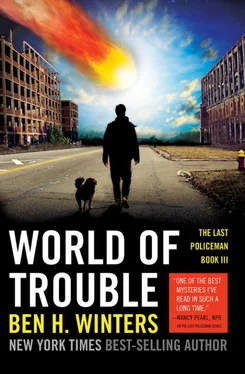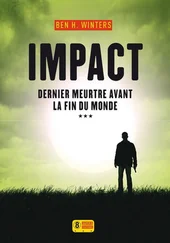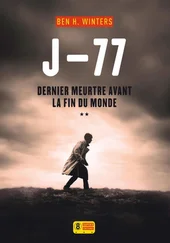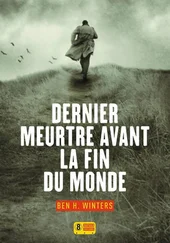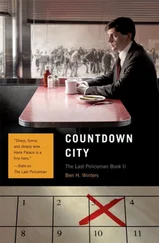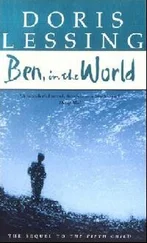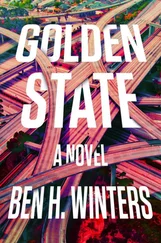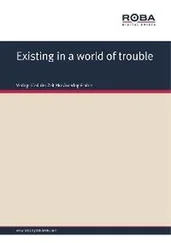Now he answers—now he answers right away. “You won’t. You can’t.”
“Of course I can.”
“I’ve made it impossible.”
“How?”
He stops talking, just shakes his head, but this is good. This is what we need. All you need is a conversation. To work toward the information you need, to get what you want from a suspect or a witness—all you need is a conversation to begin, and then you shape it, push it.
“Mr. Miller? How are you doing it?”
Just a conversation. That’s police work, that’s half of it right there. I wheel back, change tack, try again. “How did it start?”
We’re at a line of fencing. I stop, lean back on a post, as if to catch my breath, and he stops too. “No more about concrete,” I say, raise my hands in mock surrender. “I promise.”
“It was a Sunday,” he says, and my heart glows. A conversation. That’s half of it, right there. He’s talking, I listen while he talks. “Church was at Zachary Weaver’s. One or two men will go early and help to prepare the service. The others come along later. I was there early, on this day. At the Weavers’ all was in an uproar. Someone had heard a radio broadcast. There was—lamentation. Distress.” He shakes his head and looks at the ground. “And I could tell, d’you see? I knew in the crack of an instant what I would need to do. I could see it in their eyes, these people, the change that would be wrought on them. It was already happening, d’you see?”
He doesn’t wait for an answer. I don’t interrupt.
“I went out on the porch and I saw my family walking to the house from our house and I made this decision in the crack of a moment, just like that. I just—I waved with my hand—like this—I waved—” He stops on the path and raises a hand, pushing at the air: go back, stop, turn around. “I walked out of Zachary Weaver’s and I walked my family back to our home and I gave them all of that. The story you’ve heard.”
“The illness,” I say. “Pandemic.”
“Yes.”
He says it low, the one word yes, down into his beard, and for the first time since we’ve met I can read something other than grave self-seriousness on his face—a wash of grief and self-recrimination.
“The plague. The illness astride the land.” His face darkens further. He hates his lie. It eats at him, I can see it. “I gathered my people to me and I told them that the situation was severe and that we must remain isolated, even from our friends and from our church. And I said it will be a hard time, but we have God and with God’s grace we will survive.”
And on he goes, off and running, a steady stream of low syllables. As if now that he’s given himself leave to tell me some part of his story he feels compelled to tell all of it. As if part of him has been waiting lo these many months for someone to tell this story to, someone to share the burden of his accomplishments. He has been on a desert island alone with his desperate act of conscience, wrestling with his awful decision and the work it has required of him, in exile in his own home, alone through the hard months. The only people he has had to speak with don’t speak English.
He recounts gathering his people all around the family table, asking for and receiving solemn promises from everyone, from the eldest to the very young, to remain within the safety of their own land until the sickness should pass. He describes how God provided him assistance, in the form of a ragged starving troop of CIs, who had made it somehow from their Asian homelands to Newfoundland, and from Newfoundland down to this pocket of midwestern America. They understood each other well enough to make arrangements, a trade—Atlee provides shelter in tents and lean-tos in a barren field on the far side of State Road 4, and in exchange they provide labor and loyalty and discretion. They work under him, they share in the spoils, they walk the perimeter of Joy Farms at night, unseen guardians.
It is a precarious arrangement. He knows that. Eventually, one of his children or one of his children’s children will break the promise, wander off the farm and discover the truth. Or someone from the outside world, a burglar or a madman or a refugee, will smash through the fencing into the private world.
“It cannot last forever,” Atlee says. “But it does not have to. Just a few more days.”
We’re getting close now, close to that bend in the road. The sun is halfway along its slow tumble down from noon to night, another day being burned down, sloughed away.
“These are hard times, sir,” I say. “We’ve all had to make hard choices. God will forgive you.”
He stares hard at the ground for a cold second and when he looks up I am expecting anger—how dare I speak for God, how can I?—but instead he is crying, his old lined face dissolved into childlike grief. And he says in a hollow voice, “Do you think so?” Steps toward me and grabs at my shirt front. “Do you think that it’s true?”
“Yes,” I say, “of course,” and he envelops me in his grip and weeps into my shoulder. I don’t know how to handle this, I really don’t.
“Because I feel that it must be true, that God meant for it to be me. I was at the Weavers’ before church, but it might have been one of the children at the school. It might have been one of the little ones who came back from town with this awful information. But it fell to me, to know, because I was the one who could keep them from it, to keep them in grace.”
He pulls away from me, looks urgently into my eyes. “You understand that we don’t drive automobiles because they might bring us closer to sin. No cars, no computers, no phones. Distractions from the faith! But this thing—this thing that comes across the sky. It would have happened like that.” He snaps his fingers. “We would have fallen into grief, and from grief into sin. All of us. All of them.”
He shakes his pitchfork back toward the farmhouse, his family, his charge.
“The danger to this world is not what matters, do you see that? Do you see? This world is temporary—it has always been temporary.” He is reaching some sort of pitch, shaking with righteousness and pain. “God meant for me to protect them. For all the sin to be my sin. Don’t you see that He meant it for me?” Again, with fervor: “Don’t you think that’s what He meant?”
He is not speaking rhetorically, he needs an answer, and I bite back my first impulse, which is to say I have no idea what God meant, any more than you do, and then to go on, to point out the narcissism skulking in the shadows of his revelation, in this performance of humility: I did what I did because I am burdened with understanding the intentions of the unseen hand .
I don’t say any of this. There would be no reason to do so, from the perspective of my ongoing investigation, no reason to upset the apple cart of this man’s intricate belief system, to pull away at the world that he has built. I step closer and pat him on the back, sort of, feeling nothing through my bandaged hand and the rough thickness of his broadcloth coat. I wait for my galloping mind to find the smart thing to say. We’ve come now to the bend in the road, and it is the old man’s intention now that I continue on, and if I do I leave behind my last chance of finding her, of laying eyes on Nico before the end.
“I’m sorry, my friend,” he says. “I am sorry.” His affect has changed again, he is chastened now, becalmed, tilting his head down toward the dirt. “You would not go, you wouldn’t leave, and I felt I had no other choice.”
“It’s all right.” I take his hands. I hold them between my own. “I was safe all along. I was not in danger.”
Miller wipes his eyes with his big knuckles, pulls himself up to full height. “What do you mean?”
Читать дальше
